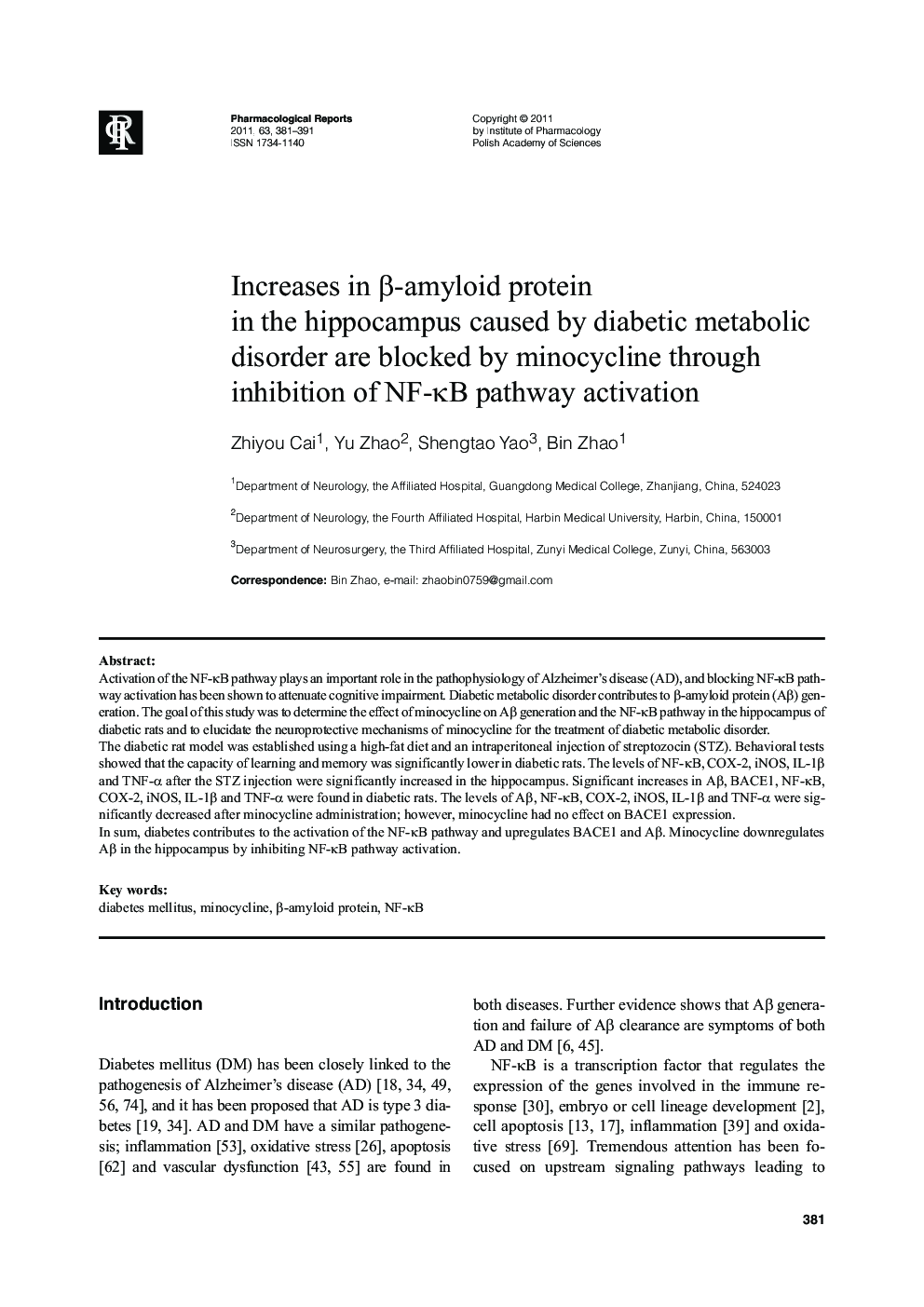| Article ID | Journal | Published Year | Pages | File Type |
|---|---|---|---|---|
| 2010820 | Pharmacological Reports | 2011 | 11 Pages |
Activation of the NF-κB pathway plays an important role in the pathophysiology of Alzheimer’s disease (AD), and blocking NF-κB pathway activation has been shown to attenuate cognitive impairment. Diabetic metabolic disorder contributes to β-amyloid protein (Aβ) generation. The goal of this study was to determine the effect of minocycline on Aβ generation and the NF-κB pathway in the hippocampus of diabetic rats and to elucidate the neuroprotective mechanisms of minocycline for the treatment of diabetic metabolic disorder. The diabetic rat model was established using a high-fat diet and an intraperitoneal injection of streptozocin (STZ). Behavioral tests showed that the capacity of learning and memory was significantly lower in diabetic rats. The levels of NF-κB, COX-2, iNOS, IL-1β and TNF-α after the STZ injection were significantly increased in the hippocampus. Significant increases in A, BACE1, NF-κB, COX-2, iNOS, IL-1β and TNF-α were found in diabetic rats. The levels of Aβ, NF-κB, COX-2, iNOS, IL-1β and TNF-α were significantly decreased after minocycline administration; however, minocycline had no effect on BACE1 expression. In sum, diabetes contributes to the activation of the NF-κB pathway and upregulates BACE1 and Aβ. Minocycline downregulates Aβ in the hippocampus by inhibiting NF-κB pathway activation.
